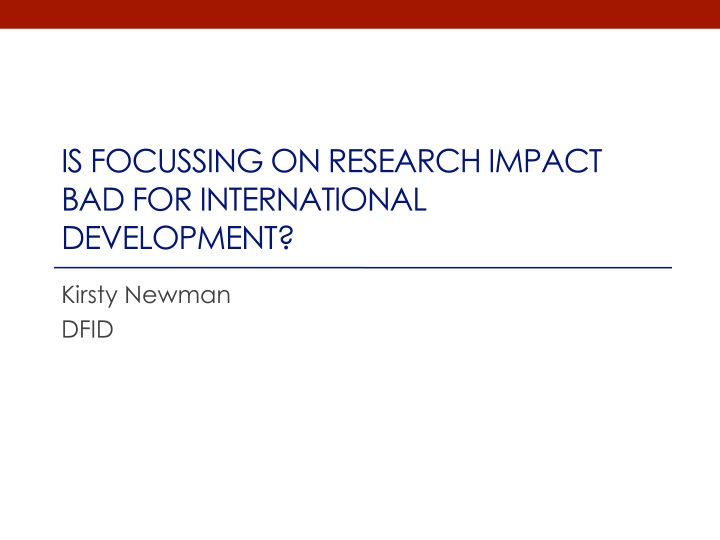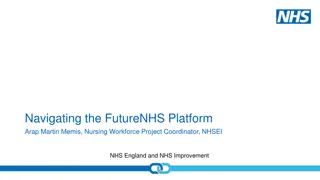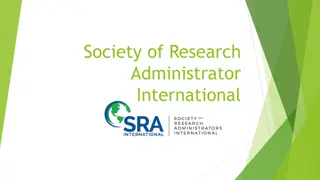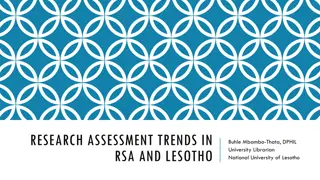Impact of Research on International Development
In this collection, Kirsty Newman from DFID shares insights on the impact of research, decentralization in public service provision, HIV treatment, and more. Explore guidelines for impactful research and consider various approaches to achieve meaningful outcomes in development work.
Download Presentation

Please find below an Image/Link to download the presentation.
The content on the website is provided AS IS for your information and personal use only. It may not be sold, licensed, or shared on other websites without obtaining consent from the author.If you encounter any issues during the download, it is possible that the publisher has removed the file from their server.
You are allowed to download the files provided on this website for personal or commercial use, subject to the condition that they are used lawfully. All files are the property of their respective owners.
The content on the website is provided AS IS for your information and personal use only. It may not be sold, licensed, or shared on other websites without obtaining consent from the author.
E N D
Presentation Transcript
IS FOCUSSING ON RESEARCH IMPACT BAD FOR INTERNATIONAL DEVELOPMENT? Kirsty Newman DFID
Is decentralisation good for public service provision?
HIV Treatment
MP-Scientist Pairing Scheme
Kirstys rules on impact 1. Use research to answer the important questions 2. Use the best methods available 3. Publish in open access format and ensure key audiences are aware of emerging findings 4. Support synthesis of findings 5. Build capacity, systems and incentives to USE research
A compromise? To achieve impact 1. Use research to answer the important questions 2. Use the best methods available 3. Set clear guidelines on advocacy and lobbying 4. Encourage researchers communicate their findings in the context of the body of evidence 5. Support synthesis of findings 6. Build capacity to access, evaluate and use research To measure impact 1. Consider impact embodied in people 2. Use episode studies to track back from key decisions/paradigm shifts























